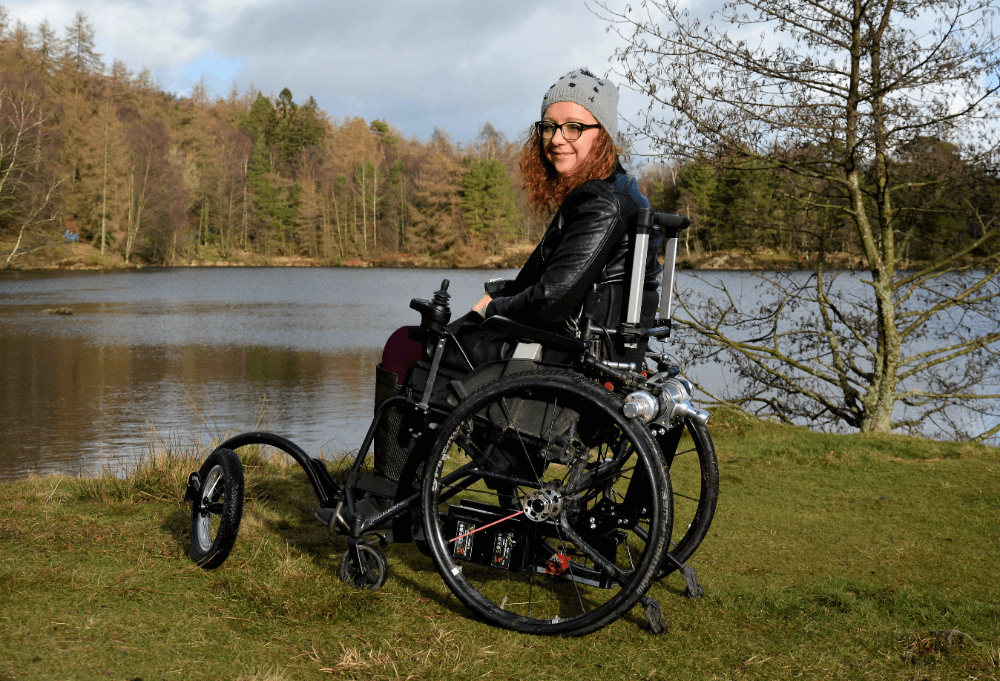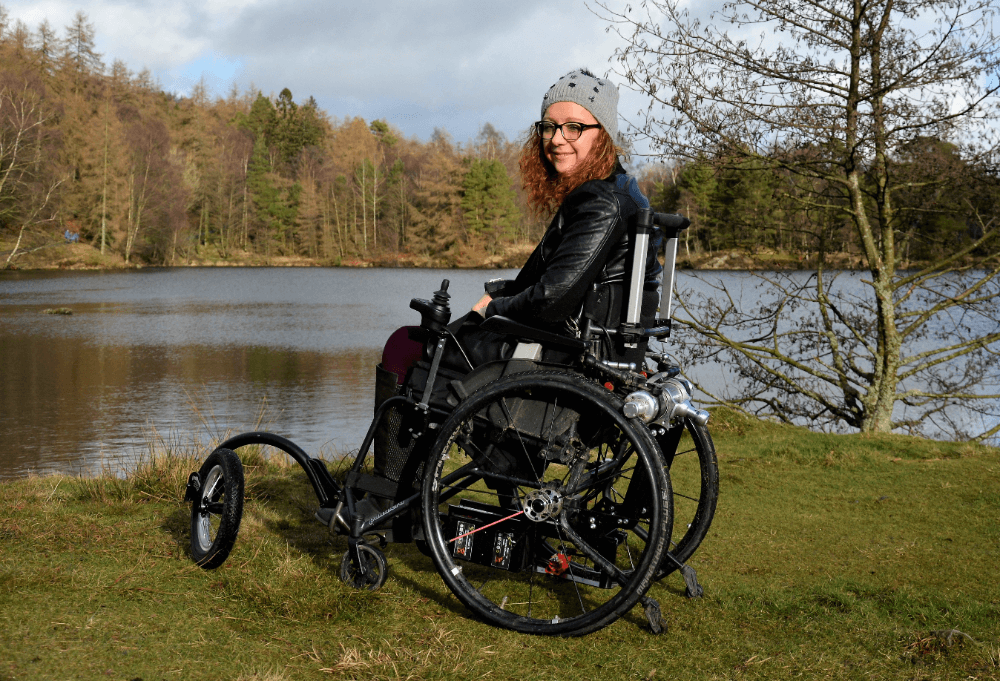
Jenna Farmer is a freelance journalist and blogger who specialises in writing about self-employed life and living with Crohn’s Disease. You can find her on Twitter or follow her blogs online. She runs The Bloglancer, a blog about freelance life and A Balanced Belly which is all about life with IBD.
Navigating university and seeking employment are already daunting tasks for most of us. Yet throw life with a chronic illness into the mix and things can get even more difficult. Whether it’s juggling hospital appointments, battling symptoms or trying to explain your condition, many individuals with chronic illnesses need extra support and adaptations whilst studying and working.
It might seem impossible at times, but support and guidance is readily available to help you thrive in your studies and career despite your illness. Here’s everything you need to know about managing university, the workplace and beyond with a chronic health condition…

Image credit – StoneVillage Photography
Managing university with a chronic illness
University is one of the most enriching periods in many young adults’ lives, and luckily there’s lots of support on hand to ensure you can access everything it has to offer.
If you’re at the application stage, it’s well worth doing some research ahead of time. For example when deciding on accomodation, you might consider a number of things depending on your condition. If you have mobility issues, being aware of the distance to and from the university is important, as is knowing about on-site catering options (which could be vital when you’re struggling with symptoms). Those with digestive conditions might need to research options with private toilet facilities.
Make sure you do some research on the course itself. How demanding is it? Is it purely exam based, or are there coursework options? Is intensive work experience mandatory to complete the course? Whilst being unwell shouldn’t stop you from starting the course of your dreams, it’s important to ensure your studies are workable around your life.
Each university has a specialist Disability Services Team with a number of advisors on hand to help. Remember, ‘disability’ is an umbrella term here and covers any condition that could require adaptations under the 2010 equality act; so this team will be well versed in assisting with a range of conditions.
“I made my module leader aware straight away of my condition. I was given my exams in a separate room to other people and extensions on my coursework, as my seizures could disrupt things” explains Ruth Webster, a blogger who struggles with non-epileptic seizures and depression. “They also arranged for me to access counselling throughout my course.”

As well as practical support from your University, you may also be eligible for additional financial support too. The government-funded Disabled Students Allowance (DSA) can help pay for any specialist equipment you need (e.g. a laptop), travel expenses, non-medical helpers and other relevant costs you incur because of your disability whilst studying. DSA covers a whole scope of conditions such as learning difficulties, long-term health conditions, physical disabilities and mental health issues. To apply, you’ll need to chat to your doctor to get a report outlining your condition and apply via your student finance account portal. After application, you’ll then be assessed to see exactly what you are eligible for “I was assessed by the DSA who then provided me with a disability mentor (who was a lifesaver!), financial help towards buying a laptop and also with a taxi service” explains Ruth.
You could be awarded up to ВЈ5,684 for specialist equipment, up to ВЈ22,063 a year for medical helpers and a general allowance of up to ВЈ1,899. Of course, this is the maximum allocated support and fees awarded will vary widely.
A PhD student (who wished to remain anonymous) adds: “DSA covered the cost of a desk chair and laptop so I could work from home. They also paid for a dictaphone which could record my lectures if I needed to leave to use the toilet. When I was an undergraduate, they also covered the price of an upgrade to en-suite accommodation in halls so I could access my own toilet.”
Finally, remember that you’re not alone in this journey and it is achievable. UCAS estimate that around 30,000 disabled students embark on University life each year. Your chosen institution will be used to offering support and adaptations to ensure you can make the most of your studies and you certainly won’t be the only person on your course who accesses additional support.
Managing employment with a chronic illness
Scope estimated that 19% of working adults are disabled and 3.7 million of these are in employment. Therefore, those with chronic illnesses and other disabilities already makes up a significant (and vital!) proportion of our workplace.
However, some still feel that the best thing to do is to hide your chronic illness and try to battle through regardless. This is not the answer and its important to note that all long-term illnesses are covered under the 2010 Equality act, which means it’s a legal requirement for employers to help make reasonable adjustments for you and your health.
Because of this, you can be reassured that you’re also not allowed to be discriminated against should your condition come up in the interview process (nor are you legally obliged to declare it at this point).
Doing your research into job roles is important, as everything from the daily commute to your working hours can impact your health. Remember, there’s nothing stopping you chatting to your prospective employer pre-interview to ensure the job is workable for you.
“Prospective employees always have the option of approaching companies with their questions and concerns, whether at interview or even before applying” explains Paralympian Liz Johnson, who recently founded The Ability People (TAP); a recruitment consultancy which specialises in improving the route to employment and experiences of employment for workers with disabilities.
“We are all humans and people with disabilities are some of the most dedicated, diligent and committed humans that businesses can have in their team. Any good company will not want to turn down the chance to improve the support they provide employees and candidates, to make sure they’re not missing out on key talent,” she adds.

The good news is that your employer might be able to offer practical solutions, such as flexible hours, working from home options, dedicated parking, specialised desk or chairs and accessible to disabled toilets.
“Definitely tell your employer!” urges Lauren Hagon, who has Crohn’s Disease and works as a Marketing Manager. “I’ve told my past two employers and they were both so supportive. They waved the amount of days I had poorly so I didn’t have any disciplinaries and were also flexible with me working from home. I actually think the experience taught me to manage my time better when I’m feeling well and I am more than capable of keeping up with my workload.”
When you’ve started your role, your employer may refer you to their Occupational Health team. This is nothing to worry about and just means that you can receive everything you need to do your job efficiently. “People can feel so nervous about their OH assessments, but I found they gave me so much reassurance,” explains Bexie Jones, who returned to work after complex surgery .”They can advocate any suggestions you have for adaptations at work. I’ve had specially ordered cushions for my seats, an adjustable desk, access to disabled toilets and flexible starting hours to work around my appointments,” she adds.
The government’s Access to Work scheme can help with further reasonable adjustments that might not be covered by your employer. Their specialist grant can pay for things like transport, specialist equipment and support worker services. You can apply for this online and you’ll need to make sure you outline your condition, the help your employer currently offers and further support you need.
Carrie-Ann Lightley, who runs an accessible travel blog explains: “I used Access to Work and received funding for taxis to and from work. When I moved jobs, they funded a wheelchair specifically for office use so I didn’t have to sit in my uncomfortable power chair all day long.”
Managing your own business with a chronic illness
Being your own boss can be hugely beneficial for those of us with long-term conditions. There’s no need to explain sick days, you can work from your sofa and can select work that fits around your life and your condition. However, just because you don’t have an employer, doesn’t mean you have to go it alone.
Should you require it, there are a number of financial organisations and charities who can help you get started as an entrepreneur. For a comprehensive list, try Disability Grants; an incredibly useful site that lists all the different grants available to those with disabilities – including those specifically for education and starting up a business.
One grant that’s definitely worth pursuing is the Stelios Award, which is specifically for disabled entrepreneurs and awards prizes of between ВЈ10,000 – ВЈ20,000.
The Fredericks Foundation offer a number of different loan options for those who might feel excluded from traditional bank loans, and of course the Government’s Access to Work scheme outlined above is also available to freelancers too, and you can still apply in the same way as if you were an employee should you need things like specialised office equipments and adaptations to make your business dreams a reality!
Once you’re generating an income, remember to factor in things you might take for granted in a regular job. Make sure you squirrel away some of your earnings for your yearly tax bill, and keep a buffer available for unexpected sick days or late invoices.

But it’s not just about money, finding a support network as a freelancer is hugely important – even more so if your health difficulties can leave you feeling excluded from traditional networking. Depending on mobility, joining a local co-working space is one possibility. These spaces can help you make contacts, build up a network and provide you with somewhere to work away from home at a much lower cost than renting an office.
However, if that’s not an option there are many online groups for freelancers (such as facebook groups The Freelance Lifestylers and Freelance Heroes), that can provide a much needed sense of community spirit. Disability Horizons is a place to connect with like minded individuals whilst The Coven is a female-only membership space. And finally, don’t be afraid to seek help with the practical side of things too. Disabled Entrepreneurs are a fantastic organisation who can help with things like vital business mentoring and funding.
Whilst it’s not specifically aimed at those with chronic illnesses, those in London might want to connect with Enterprise Steps who have lots of free guidance for new startups in the capital.
We hope this guide has proven that there is no reason why those with chronic illnesses can’t flourish in university, the workplace and beyond! Whilst chronic illness is certainly debilitating at times, it shouldn’t necessarily stop you from achieving your dreams.
Download Debut and connect with us on Facebook, Twitter and LinkedIn for more careers insights.


